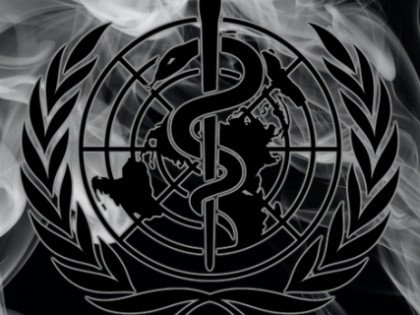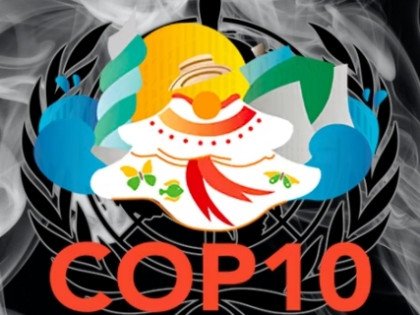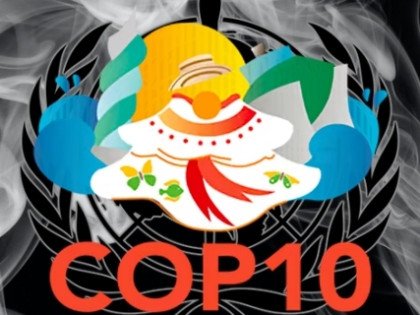CAPHRA is a regional alliance of consumer tobacco harm reduction advocacy organisations. Its mission is to educate, advocate and represent the right of adult alternative nicotine consumers to access and use of products that reduce harm from tobacco use.
“We are shocked but not surprised. We know American-based billionaires have long been unduly influencing tobacco control policymaking, but we didn’t have the hard evidence of the money trails. Now we do and it’s very disturbing,” says Nancy Loucas, Executive Coordinator of the CAPHRA.
Leading Tobacco Harm Reduction advocate, Clarisse Virgino, who’s also the Philippines’ CAPHRA representative, released the explosive research (1). It has since been reported on extensively in the Filipino media and has now gone global.
“They’ve been caught out badly - applying bullying tactics to unduly influence sovereign nations’ public health policies. Completely dismissing compelling international scientific evidence, their dirty money and interference means Asia Pacific’s 600 million smokers continue to have either limited access or no access to safer nicotine products,” says Ms Loucas.
The research shows that over the past decade millions of dollars have been given in grants to seven NGOs in the Philippines from various tobacco control and public health think tanks that are funded through Bloomberg’s philanthropy. With no transparency or accountability, an anti-vaping crusade has been engineered to try to undermine Filipino policies on regulating the world’s most effective smoking cessation tool.
Peter Dator, President of adult consumer advocacy group Vapers PH and CAPHRA member, says the NGOs greed does not help the crippling smoking epidemic in the Philippines. Rather, their selling out only makes it worse.
“It is very disappointing that several NGOs received millions of dollars from foreign entities to lobby the Philippines government to ban vaping. Sadly, these organisations do not have the public’s interest at heart. They are just being manipulated. The good news is they’ve wasted their money, as our Senate is about to positively regulate vaping,” says Mr Dator.
The research also finds similar strategies by the billionaire foundations, NGOs and charities to influence public health policies and demonize the work of tobacco harm reduction advocates in Australia, Malaysia and Pakistan.
"This research shows that corruption and conflicts are widespread. In fact, globally, hundreds of millions of US dollars are being spent by billionaire-backed charitable organizations and pharmaceutical companies to force an anti-vaping agenda onto unsuspecting countries,” says Ms Loucas.
Furthermore, tied to the billionaires, the likes of big pharma are using their charitable organizations to attack vaping while marketing their own less effective smoking cessation products, she says.
Fortunately, their money hasn’t influenced everyone. In fact, the Asia Pacific region has seen several countries in recent years deliver progressive and successful tobacco harm reduction policies.
“Nonetheless, it’s outrageous that big American money and influence continues to demonize both advocates’ work and safer nicotine products. Their egos and arrogance are costing millions of lives in Asia Pacific each and every year,” says Ms Loucas.
“Vapers PH has fought tooth and nail to help Filipino smokers quit their deadly smoking habit. Unlike the several NGOs who received millions of dollars from foreign groups, our only motivation is for smokers to successfully quit or make the switch to safer alternatives. This research only hardens our resolve to keeping fighting,” says Mr Dator.
Ms Loucas says confirmation of the American billionaire meddling in the Asia Pacific comes at a bad time for the World Health Organization and its regional supporters hellbent on demonising vaping.
September sees the 13th Asia Pacific Conference on Tobacco or Health (APACT). The WHO’s Southeast Asia Regional Office (SEARO) is also holding its regional conference with the Western Pacific Regional Office (WPRO) following in October.
“Like the billionaire foundations and the corrupted NGOs, these conferences also oppose access to safer, smoke-free alternatives for those who cannot stop using deadly combustible cigarettes. The proven health policy of Tobacco Harm Reduction saves lives. Sadly, however, the lies will continue to be peddled for as long as the American money keeps coming,” says Nancy Loucas.
References:
- CAPHRA Research Findings - https://caphraorg.net/wp-content/uploads/pdfs/clarisse_virgino_research.pdf
- The Coalition of Asia Pacific Tobacco Harm Advocates - https://caphraorg.net/
- Right To Vape - www.righttovape.org
- CAPHRA petition - change.org/v4v-petition
Dave Cross
Journalist at POTVDave is a freelance writer; with articles on music, motorbikes, football, pop-science, vaping and tobacco harm reduction in Sounds, Melody Maker, UBG, AWoL, Bike, When Saturday Comes, Vape News Magazine, and syndicated across the Johnston Press group. He was published in an anthology of “Greatest Football Writing”, but still believes this was a mistake. Dave contributes sketches to comedy shows and used to co-host a radio sketch show. He’s worked with numerous start-ups to develop content for their websites.
Join the discussion
CAPHRA Highlights Tobacco Control Flaws
The Coalition of Asia Pacific Tobacco Harm Reduction Advocates highlights the flaws in tobacco control which has led to the rise of black market in Australia
Alarm Regarding WHO’s Opacity
The Coalition of Asia Pacific Tobacco Harm Reduction Advocates sounds the alarm on WHO and FCTC's “disturbing lack of transparency”
COP10: Use The Evidence
The Coalition of Asia Pacific Tobacco Harm Reduction Advocates demands an evidence-based approach to tobacco harm reduction from the World Health Organisation and the Framework Convention on Tobacco Control
Exclusionary Tactics Criticised
Global tobacco harm reduction advocates have criticised the WHO’s exclusionary tactics at COP10, the Framework Convention on Tobacco Control conference starting today






-listing400.jpg)




